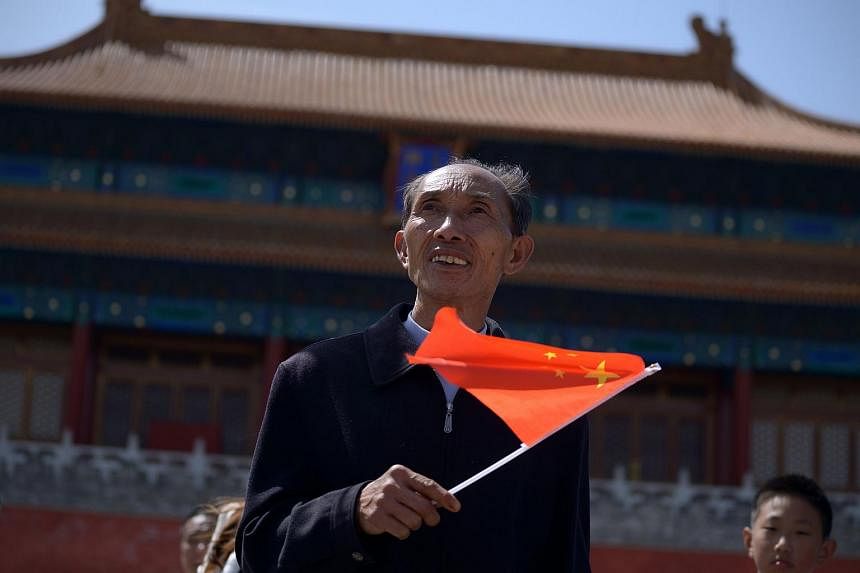THE danger of another Sino-Japanese war has set alarm bells ringing for the past several weeks. Comparisons have been made to the start of World War I. China's assertiveness has reminded some of upstart Germany or Japan and their imperial ambitions earlier in the 20th century. All these are misleading. What many of the headlines are trying to do is to warn China to back off from what it is doing in the South and East China seas and conform to the current international system - or be treated as a threat to world order the way Germany and Japan had been.
The modern system of international relations evolved during the past century from its base in the North Atlantic. At its peak, countries such as Britain, France and the United States dominated it. Earlier in the 20th century, Germany had twice wanted to share power in the system. But its challenges were repulsed and its power finally destroyed after two world wars.
In Asia, leaders in Japan tried to come up with their share of the system in order for them to dominate the Asian continent and the Western Pacific islands but they too were eventually defeated. Today, they calculate that their future place must depend on using the same global system to counter a rising China.
One could add revolutionary Russia after the 1940s as another power that also had a turn at trying to undermine the Atlantic system. Its efforts were global during the Cold War but its overreach ultimately undermined its ability to challenge the US.
Today, the US appears to think that the only country that has the capacity to compete with it is China. Other Asian countries are the products of years of tutelage under Western colonial officials. In any case, after decolonisation, none of the new nation states can act like Germany or Japan. They accept the existing international system and have readily used it to serve their own interests. Such support has strengthened the system's claim to universality.
China's traditional system was the last in Asia to fall. It was fortunate that rivalries among the Great Powers prevented it from being dismembered. Its two revolutions - in 1911 and 1949 - were both inspired by European models, and they put China on the road to participate in what the West had established. In addition, after 1978, Deng Xiaoping used the system cleverly to help China's economic reforms and this has ensured China's high level of dependence ever since.
The Chinese are now discovering that full membership of the system exacts a high price. Behind the economic benefits it provides is a structure of laws and analyses that guide diplomatic and strategic thinking and action today. China has been wise to attend to that structure systematically. But its focus has been largely on shaping an environment that will allow the country to develop. There is little evidence it would engage in activities that go beyond that goal. Chinese leaders realise that they do not have an alternative system to sustain future development. They know that their country is not Germany or Japan, and have carefully studied how to avoid the mistakes that led both to disaster. But there are analysts in the region and beyond who remain sceptical and still fear that China could follow the examples of the two expansionist powers.
Given such circumstances, China has to reconsider the way it handles the current international system. National pride and a deep sense of duty demand that it defend its right to remain sovereign and distinctively Chinese. But when the country is also beset by corruption, injustice, environmental degradation and growing discontent within, the struggle to develop in peace could become more difficult.
Chinese history has warned of dangers when both internal unrest or neiluan, and external turbulence, waihuan, are present. China may, sooner than it likes, face that condition again. But it is no longer a matter of dealing with smaller neighbours one at a time. What their leaders face is a powerful rule-based system that most countries are prepared to accept.
China has so far been able to use the system to serve its interests. But it is more demanding than what China has been ready to give in return. The game requires that it submit to principles that are being codified as universal, some of which Chinese leaders are not yet able to accept.
Here is China's challenge. The guardians of the international system project a rising China that is unwilling to be more open and free. They imply that when China becomes more powerful, it will be harder to make it play by their rules. Whether justified or not, using the German and Japanese analogies will help them suggest that China is a potential threat to world order.
It is in this context that Japan is joining those that are similarly concerned about China's rising power, to encourage the American pivot or rebalance in Asia. Chinese leaders are aware of this danger to its image and its future role in the region. If China's leaders and diplomats fail to counter the current efforts to paint the country onto the German and Japanese template, there will be even more strategies to contain China, strategies that would disrupt the economic progress it still needs.
The problem the region faces is not China's rise to power or even the mistakes that China is seen to be making. It stems from the sense of urgency among some countries to make China conform to a system that still needs American power to enforce its will. Thus it is not only China's own initiatives that really matter. It is also what the US is willing to do to further empower that system and how much it understands China's need to protect its distinctive place in the world.
The writer is a professor at the National University of Singapore, and chairman of the managing board of the Lee Kuan Yew School of Public Policy.


